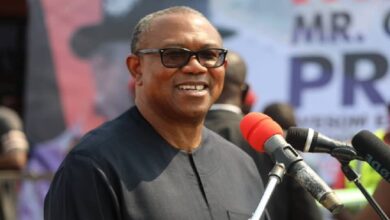Reps Move to Bar Civil Servants from Using Private Schools, Hospitals

The House of Representatives has introduced a bill seeking to prohibit public and civil servants from patronising private schools and healthcare services, in a bid to revive confidence in Nigeria’s public institutions.
The legislative proposal which was introduced on Tuesday, is titled: “A Bill for an Act to Prohibit Public and Civil Servants from Patronizing Private Schools and Health Care Services and for Related Matters (HB 2487)”
The sponsor of the bill, Hon. Amobi Godwin Ogah, while briefing journalists at the National Assembly, said the proposed legislation seeks to compel government officials and their families to use public schools and hospitals.
According to Ogah, the proposed legislation marks a watershed moment in Nigeria’s efforts to address the declining state of public institutions.
He said the mass exodus of government functionaries and civil servants to private and foreign institutions has contributed to the poor state of Nigeria’s public education and healthcare systems.
“This bill intends to prohibit all public and civil servants, including their immediate family members, from patronising private schools and healthcare services in order to avoid conflict of interest, maintain public trust and ensure high uncompromised standards and integrity of these public institutions,” Ogah said.
Citing Nigeria’s founding fathers, the lawmaker noted that Sir Ahmadu Bello, Dr. Nnamdi Azikiwe, Chief Obafemi Awolowo and Sir Tafawa Balewa were all products of public schools, unlike the present trend where public officials shun government institutions.
Ogah decried the level of capital flight associated with medical and educational tourism, revealing that Nigerians spent over $29.29 billion on foreign medical treatment during the administration of former President Muhammadu Buhari, while at least $218.87 million went into foreign education in 2023 alone.
In comparison, he said only N1.336 trillion was allocated to healthcare in Nigeria’s 2024 national budget, a figure that falls far short of the estimated N1.6 trillion spent annually by Nigerians seeking treatment abroad.
“If we have started the removal of petroleum subsidy, we must also enforce this bill to prohibit the patronising of private schools and healthcare services by public and civil servants,” Ogah said.
He said due to the patronage of foreign health and education services, the country’s institutions of learning and medical care have become a shadow of themselves, with little or no infrastructural development and fallen standards.
The lawmaker said the proposed law would not only restore public confidence in government-run schools and hospitals but also help reverse the trend of top officials seeking medical care abroad and, in some cases, dying overseas.
He called on Nigerians, especially the media, to support the bill and embrace a new culture of national consciousness aimed at promoting and revitalising Nigeria’s public institutions.





